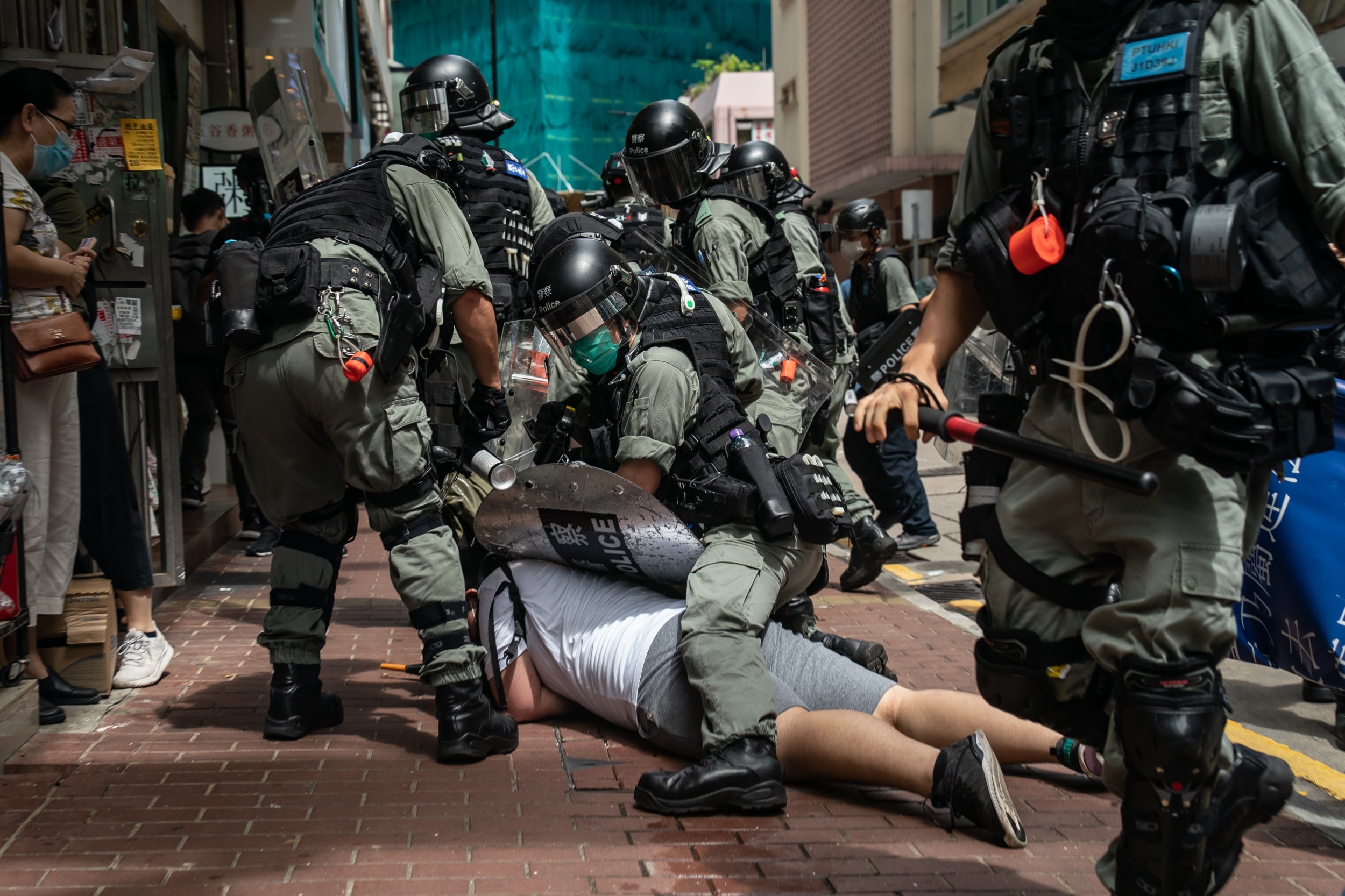How China could block UK’s offer of citizenship to Hongkongers
Impasse will further strain the already fraught relationship between London and Beijing, writes Kim Sengupta


Britain’s offer of safe haven to people in Hong Kong was followed by a statement from Australia’s prime minister, Scott Morrison, announcing that his country, too, would give them refuge. In Canada, pressure is growing on Justin Trudeau’s government to make a similar gesture.
The Australian offer follows a request from the UK last month to its partners in the “Five Eyes” network – the US, Australia, New Zealand and Canada – to consider “burden sharing” if there is a mass exodus from Hong Kong. There has not been any official statement on the matter from New Zealand. The Trump administration has imposed sanctions on a number of Chinese officials, but has not said whether Hong Kong residents would gain entry to the US.
China’s response to the UK’s granting of right of residency to the people of Hong Kong has been belligerent, claiming that London has no right to make the offer and threatening retaliation. Foreign ministry spokesman Zhao Lijian, who is held up in China as an example of the country’s new breed of combative “wolf warrior” diplomats, said: “China strongly condemns this and reserves the right to take further measures. The British side will bear all the consequences.”
Liu Xiaoming, China’s ambassador to London, stressed that his government’s position was that the move by the UK on those with British Nationals Overseas (BNO) status would be in breach of agreements between the two states.
“All Chinese compatriots residing in Hong Kong are Chinese nationals, whether or not they are holders of the British dependent territories citizens passport or the British national (overseas) passport,” he maintained.
“If the British side makes unilateral changes to the relevant practice, it will breach its own position and pledges as well as international law ... We firmly oppose this and reserve the right to take corresponding measures.”
Under the draconian new laws that have been introduced, security officials will have the power to stop residents from travelling abroad: this could be applied to those seeking to come to the UK. Up to three million people are theoretically eligible to come here, but the actual numbers are expected to be far fewer.
People can try to get to the UK via a third country. But that, diplomats point out, can itself mean that they can be deemed to be guilty of one of the main charges under the legislation – secession, subversion, terrorism and collusion with foreign forces – which are sweeping in scope, each carrying a sentence of life imprisonment.
Dominic Raab, the foreign secretary, acknowledged that it would be extremely difficult to counter such a measure. “Ultimately, if they follow through on something like that there would be little that we could do to coercively force them,” he said in a television interview.
“There is diplomatic leverage; there are other ways that we can persuade China not to fully implement either the national security law or some of the reprisals you talk about ... But ultimately we need to be honest that we wouldn’t be able to force China to allow BNOs to come to the UK.”

The Chinese government can take the same measures against people from Hong Kong attempting to go to Australia. In Canberra, Mr Morrison said that the government is finalising the plan and deciding whether it would be lead to permanent settlement rights.
Beijing has not specified what measures it could take against the UK over the citizenship issue. But what happened to Australia after it called for an independent international investigation into the spread of the coronavirus pandemic provides a pointer. The Chinese government, which has been accused of hiding the initial spread of the disease, responded by targeting Australia with punitive economic sanctions, imposing tariffs on Australian barley, banning beef imports and telling Chinese citizens not to travel to Australia for tourism or education. This was followed by a major cyberattack on Australian infrastructure, which has been blamed on China.
Australia has refused to back down. Amid rising tensions it announced this week that it will significantly boost its defence spending and acquire long-range missiles and other advanced capabilities. Mr Morrison said the investment was necessary because the Indo-Pacific region has become the “focus of dominant global contest of our age”. He gave examples of recent border clashes between China and India, and naval skirmishes between China and neighbouring states at sea.
China has already warned the UK of economic consequences if the government reverses its decision to let the telecommunications company Huawei into the country’s 5G network. Beijing may reconsider, it was suggested, its planned involvement in the HS2 high-speed rail network and building of nuclear power plants.
The impasse over Hong Kong will further strain the already fraught relationship between the two countries. There will be a price to pay, as Australia has found, in confronting China.
Join our commenting forum
Join thought-provoking conversations, follow other Independent readers and see their replies
Comments